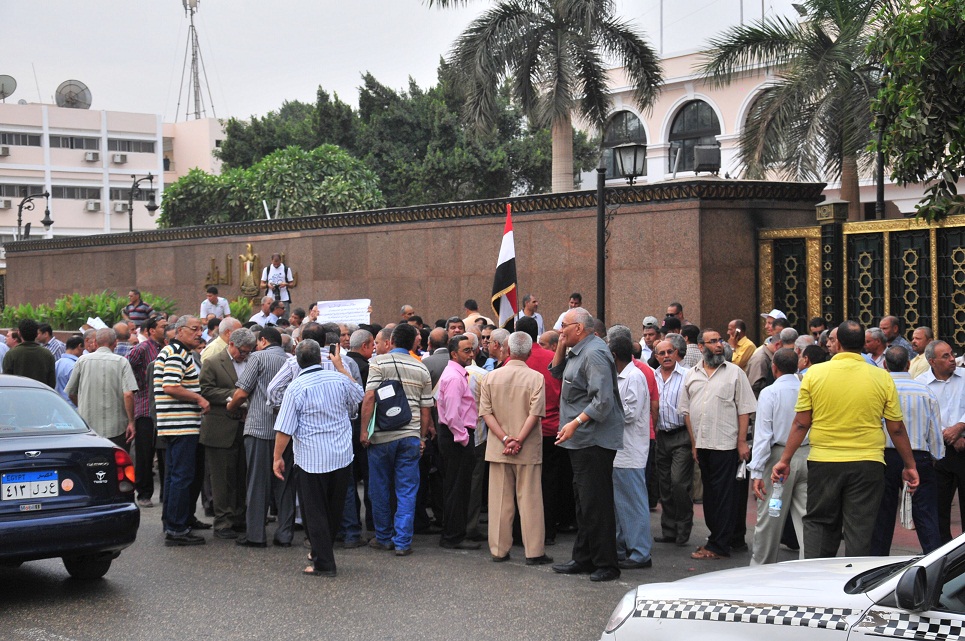NEW YORK: For weeks, the scene has been re-played on TV screens around the world, as if the events were breaking news: joyous Berliners dancing atop the infamous Wall, toppled 20 years ago on November 9, 1989. “Die Mauer ist Weck, the people cried out, punching their fists in the air before the cameras at the Brandenburg Gate. “The Wall is gone!
Without doubt, it is one of the iconic images of the 20th century. For Americans, especially, it was the totemic emblem of victory in the Cold War. Yet, if you were there that night, as I was for Newsweek, the moment is more ambiguous, especially with the hindsight of two decades. Simply put, history could easily have happened very differently, and almost did.
Egon Krenz, the Communist boss of the German Democratic Republic, called it a “botch. He was savoring a rare moment of triumph when his party spokesman stopped by in the late afternoon of November 9. “Anything to announce? asked Günter Schabowski, innocently. Krenz hesitated, then handed him a press release. It was to announce a major initiative he had forced through parliament only hours earlier, and which the country’s restive people had been demanding in the streets for weeks: the right to travel. Krenz intended to give it to them – but only the next day, November 10.
Oblivious to this critical fact, Schabowski went off and read it out to the world in a now-famous vignette. “When does it take effect? reporters asked. Confused, Schabowski neglected the all-important date: “so fort, he said. “Immediately. In a heartbeat, the damage was done. Astounded East Germans surged like a human sea to the crossing points to the West. Border guards, receiving no instructions and not knowing what else to do, opened them up. The rest is history.
Accident has always shaped human destiny. Even so, it is worth asking, What if Schabowski had not messed up? Imagine that, the next day, Krenz’s travel laws had taken effect in an orderly and efficient German way.
Strictly speaking, the Wall would not have fallen. It would have been opened, not breached. The Communists, not the people, would have done it. Change might have come by evolution, not revolution. Might Krenz and the Communist reformers who had seized power just weeks earlier have been able to channel popular unrest, or even defuse it? Instead of a unified Germany today, could there still be two Germanys, East and West?
The “what if game can be played out endlessly. Without the drama of that night at the Wall, with all its inspiring visuals, would the Velvet Revolution in Prague have come one week later? Would Romanians have found the courage to rise against Nicolae Ceausescu a month later? The dominoes of Eastern Europe might have toppled differently. A few might not have toppled at all.
Forty-eight hours after the first Germans clambered atop the Wall, I stood through a freezing night with several thousand West Berliners in the muddy no-man’s-land that was Potzdammer Platz at the old heart of pre-war Berlin. The hump of Hitler’s bunker curved softly under the earth a football pitch or so away. An East German construction crew was knocking a new passage through the Wall, and it was tough going. A giant crane strained to lift a 12-foot-high slab, yanking it back and forth like some dinosaur gnawing its prey. Finally, it gave way and was hoisted above the crowds, twisting slowly, as if from a gibbet.
Television spotlights illuminated its broken surface, scrawled with grafitti. All the unresolved conflicts of Europe were on that chunk of painted concrete: a neo-Nazi swastika, surrealistic faces of Europe’s dead from war and Holocaust and secret police purges. Most notable was a word: Freiheit. Freedom.
How odd that it should be that slab, that word, that evening. As the sun set in the west, a huge and perfect orange ball burning into the earth, the moon had risen in the east, as perfectly full and round as the sun, cool and bluish white. It was as though they were in balance, moving on an invisible axis, with Berlin poised between them, at once suspended and a fulcrum. Freiheit. It was almost enough to make one believe in destiny, there in that haunted land of ghosts.
We often think of history as something inevitable, a culmination of great, grinding forces that can only lead to one destination. But the reality of 1989, one of the organizers of the mass protests at the time told me, is that “it was possible at any point, at any time, for events to take a different course.
Why this, not that? The answer seems to consist in those countless individual choices at key moments, the accidents of human messiness, such as Schabowski’s “botch, so small and so understandable, yet so earthshaking. Among them, too, were the choices of courageous protestors to go into the streets, to speak out – or, as this particular protestor put it to me, not to have to explain to the next generation, “We sat and waited. Those dancing on the Wall, 20 years ago, made their choice.
Michael Meyer,Newsweek’s bureau chief in Germany and Eastern Europe in 1989, is author of The Year That Changed the World. This commentary is published by DAILY NEWS EGYPT in collaboration with Project Syndicate (www.project-syndicate.org).


